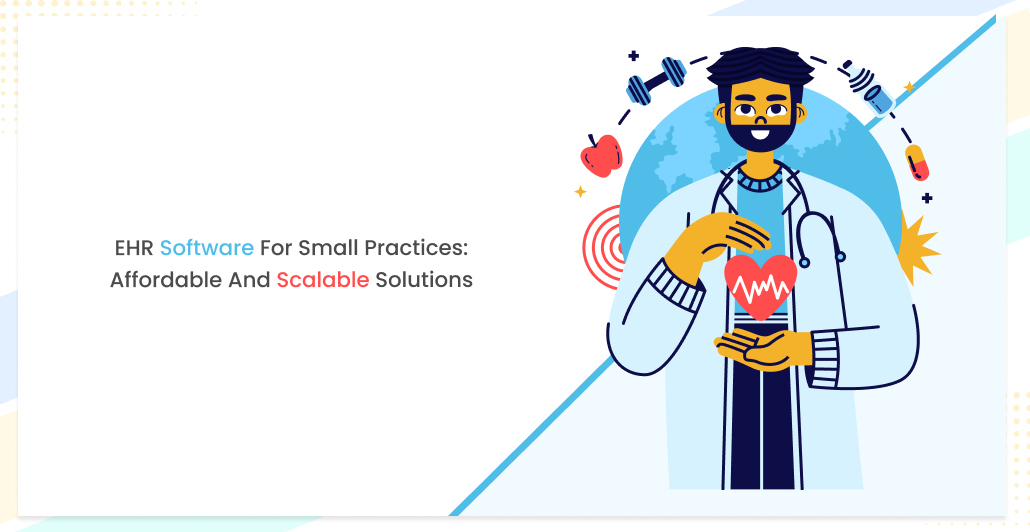In the ever changing world of healthcare, technology is key to better patient care, smoother operations and compliance. Electronic Health Record (EHR) software is at the heart of this change. For small practices, the right EHR Software can be an affordable and scalable way to manage patient data. This post talks about EHR software, its benefits and how small practices in India and beyond can use these to improve their practice.
What is EHR Software?
Electronic Health Record (EHR) software is a digital version of a patient’s paper chart. It is a real time, patient centric system that makes information available instantly and securely to authorized users. An EHR system is designed to go beyond the standard clinical data collected in a provider’s office and can include a broader view of a patient’s care. EHR software development is all about creating systems that can manage patient information, streamline workflows and patient care.
Benefits of EHR Software for Small Practices
- Improved Patient Care: A comprehensive and timely source of patient information is valuable for delivering better patient care in clinical settings, and EHR software achieves this. It facilitates fast retrieval of information – this is important because it allows the caregiver to make rightful decisions without overlooking essential details.
- Efficiency and Productivity: Electronic Health Records Systems make practice activities efficient by completing tasks like appointment booking, fee collection, and recording patient encounters without demanding practice time from physicians. It makes it possible for healthcare providers to provide adequate time providing care to the clients and not time being spent on tasks such as billing.
- Enhanced Collaboration: Information generated from EHR systems enhances interaction and coordination among care providers. This type of care means that various specialists can join a particular patient’s case and present all the data to one another since they all can see the patient’s complete medical record.
- Cost Savings: Implementing EHR software can be costly but in the long run, it was registered that costs were cut down. The benefits of preparing such documents or performing a range of functions electronically can include decreased amounts of paperwork, increased productivity, and fewer mistakes which may decrease operational costs.
- Regulatory Compliance: EHR software assists practices to meet the legal requirements of their respective regions, be it the healthcare regulations enacted in the United States under the Health Insurance Portability and Accountability Act (HIPAA) or the Data Protection Rules enacted in India. This compliance helps to maintain the confidentiality of patients' records while also minimizing the chances of the health care being dragged to court.
- Scalability: Therefore, to increase the firm’s size, and be able to accommodate other clients besides the sample used in this case, the operational scale is key for small practices. These solutions can also be scalable: it is possible to expand the number of patients your practice uploads to the system and add new features as the requirements change without having to change the solutions entirely.
EHR Software Development
There are several significant considerations when developing EHR software that can prevent problems with the system, make it unusable, or noncompliant with clinical requirements. Key aspects of EHR software development include: Key aspects of EHR software development include:
- User Interface Design: Establishing effective and efficient human-computer interaction is thus important and the user interface on the human side should be simple to understand and use for the healthcare providers.
- Data Security: Because EHR contains critical patient information, additional security features such as encryption and access control should be included in the EHR software, coupled with security checkups to identify and address any vulnerabilities in the system.
- Interoperability: It requires that EHR systems create interfaces and connections with other healthcare systems as well as other devices to enable smooth interchange of data.
- Customization: As shown earlier, every practice requires features that are different from another practice; hence EHR software should therefore incorporate characteristics that can be adjusted to fit the needs of any specific practice.
- Scalability: This means that the system should also be scalable enough to evolve with the practice and support additional data volume and other functionalities depending on the growth of the practice.
Conclusion
Electronic Health Records software is revolutionizing small practices, providing robust benefits across patient care and overall practice management. This role will remain important in the future as the realization of value-based care, new technologies, and the uncertain healthcare environment place small practices in a challenging position. No matter, if you are using EHR in India or any part of the world, choosing the one that is perfect for your practice, can show the way to the team for better efficiency and an excellent and more patient-friendly clinical journey.
With the right EHR system in place, small practices can not only improve their daily operations but also enhance the overall patient experience, ensuring better health outcomes and higher satisfaction rates.





Comments